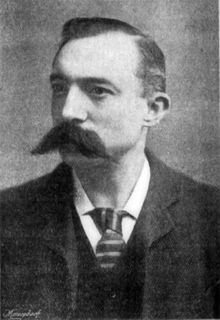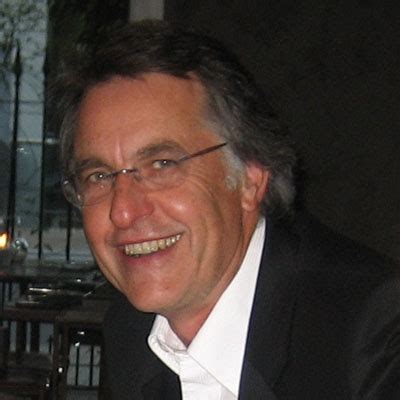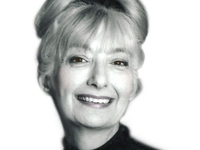A Quote by Roger Williams
Consider England. Within a few score years how many unsettling changes in religion has the whole kingdom made, according to the change of its rulers, in the various religions which they embraced.
Related Quotes
The one eternal religion is applied to the opinions of various minds and various races. There never was my religion or yours, my national religion or your national religion; there never existed many religions, there is only the one. One infinite religion existed all through eternity and will ever exist, and this religion is expressing itself in various countries in various ways.
I was born into a Christian household, in a parsonage in fact, so I grew up in sort of a missionary atmosphere but it was an environment which involved both the traditional religions as well as the Muslim religion, so we were exposed to all the various facets of faith, micro cultures which existed within those beliefs, and even though I've lost whatever Christian faith was drummed into me as a child, I still maintain very good relationship with all the various religions.
Reading their letters and the First Amendment of the US Constitution, I infer that this nation's founders noted that religions have been at the center of great deal of trouble, so they precluded the US government from getting involved in religion, i.e. "... shall make no law respecting an establishment of religion, or prohibiting the free exercise thereof..." Over the centuries, various religions have laid claim to various morals; consider the difficulties outsiders are having today in the Middle East, for example.
Religions are not revealed: they are evolved. If a religion were revealed by God, that religion would be perfect in whole and in part, and would be as perfect at the first moment of its revelation as after ten thousand years of practice. There has never been a religion which fulfills those conditions.
RELIGION is one's opinion and belief in some ethical truth. To be a Christian is to have the religion of Christ, and so to be a believer of Mohammed is to be a Mohammedan but there are so many religions that every man seems to be a religion unto himself. No two persons think alike, even if they outwardly profess the same faith, so we have as many religions in Christianity as we have believers.
I have always marveled that so many religions exact such revenge against dissenters. It only weakens the appeal of their faith and contradicts any claims they might have made that 'all religions are basically the same.' If all religions were indeed the same, why not let someone be 'converted' to another religion?
Many scales of climate change are in fact natural, from the slow tectonic scale, to the fast changes embedded within glacial and interglacial times, to the even more dramatic changes that characterize a switch from glacial to interglacial. So why worry about global warming, which is just one more scale of climate change? The problem is that global warming is essentially off the scale of normal in two ways: the rate at which this climate change is taking place, and how different the "new" climate is compared to what came before.
You have to have a fundamental change in the culture of policing, and who is the police person. How do they change? How do you learn from England and the other places, or Australia? In England, they don't carry guns on the whole. It's a different kind of mentality that does not demonize, and it's justified on race and income and class.
The three religions because I wanted to discuss faith, not organized religion, so wanted to relativize organized religion by having Pi practice three. I would have like PI to be a Jew, too, to practice Judaism, but there are two religions that are explicitly incompatible: Christianity and Judaism. Where one begins, the other ends, according to Christians, and where one endures, the other strays, according to Jews.
Yet rather than calling the earliest religions, which embraced such an open acceptance of all human sexuality, 'fertility cults,' we might consider the religions of today as strange in that they seem to associate shame and even sin with the very process of conceiving new human life. Perhaps centuries from now scholars and historians will be classifying them as 'sterility cults.
If one looks with a cold eye at the mess man has made of his history, it is difficult to avoid the conclusion that he has been afflicted by some built-in mental disorder which drives him towards self-destruction. Murder within the species on an individual or collective scale is a phenomenon unknown in the whole animal kingdom, except for man, and a few varieties of ants and rats.
I recognize thart even you, yourself, will change. Your ideals will change, your tastes will change, your desires will change. Your whole understandings of who you are had better change, because if it doesn't change, you've become a very static personality over a great many years, and nothing would displease me more. And so I recognize that the process of evolution will produce changes in you.
What we experience in various and specific milieux, I have noted, is often caused by structural changes. Accordingly, to understand the changes of many personal milieux we are required to look beyond them. And the number and variety of such structural changes increase as the institutions within which we live become more embracing and more intricately connected with one another. To be aware of the idea of social structure and to use it with sensibility is to be capable of tracing such linkages among a great variety of milieux. To be able to do that is to possess the sociological imagination
All religions are not the same. All religions do not point to God. All religions do not say that all religions are the same. At the heart of every religion is an uncompromising commitment to a particular way of defining who God is or is not and accordingly, of defining life's purpose.
Anyone who claims that all religions are the same betrays not only an ignorance of all religions but also a caricatured view of even the best-known ones. Every religion at its core is exclusive.





































